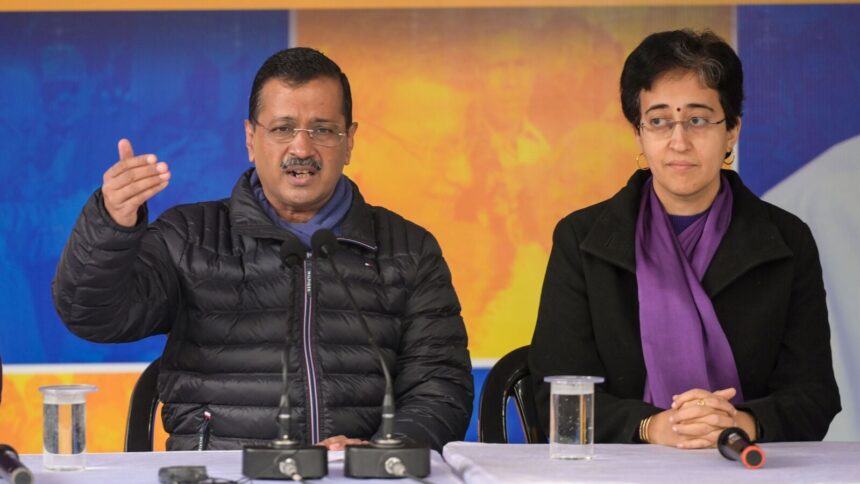Title: Controversy Over "Temporary Chief Minister" Remarks: LG VK Saxena’s Response to AAP’s Arvind Kejriwal
In a rapidly evolving political landscape, recent remarks made by Aam Aadmi Party (AAP) national convenor Arvind Kejriwal regarding Delhi Chief Minister Atishi have ignited heated exchanges and highlighted the delicate nature of political discourse in the capital. Lieutenant Governor of Delhi, VK Saxena, has publicly objected to Kejriwal’s reference to Atishi as a "temporary Chief Minister," asserting that such comments are not only disrespectful to Atishi but also to the President of India and himself in his capacity as her representative.
The Context
The political tensions come at a time when Atishi, a prominent member of the AAP, has stepped into the role of Chief Minister following Kejriwal’s resignation after his release from Tihar Jail. Kejriwal had been incarcerated for five months in connection with the controversial Delhi liquor policy case. His resignation surfaced amid heightened scrutiny of his leadership, sparking significant changes within the party and government.
LG VK Saxena’s Discontent
In a letter addressed to Atishi, VK Saxena expressed his "hurt and objection" at the remarks made by Kejriwal, emphasizing the need for respectful public discourse, particularly regarding the Chief Minister’s role. He stated, "I found this very objectionable, and I was hurt by it. It was not only an insult to you, but also to your appointee, the President of India, and to me as her representative." Saxena’s strong reaction underscores the importance of maintaining decorum in political discussions, which can significantly impact public perception and governance.
Highlighting Atishi’s Governance
Saxena, in his correspondence, took the opportunity to commend Atishi’s approach to her duties, noting that she has taken charge of several departments and engaged proactively with various administrative issues—actions he described as a stark contrast to her predecessor, who did not actively participate in governance. "For the first time in my two and a half years of tenure, I saw a person holding the post of Chief Minister doing the work of the Chief Minister," Saxena remarked.
He pointed out that while Atishi has embraced her responsibilities, her predecessor was comparatively disengaged, “where your predecessor Chief Minister did not have a single department of the government and neither did he sign files.” Saxena further approximated her performance as “a thousand times better" than that of her predecessor, reflecting a level of optimism for her leadership.
Political Implications
This incident not only reveals the ongoing rifts within the AAP but also sheds light on the complexities of governance in Delhi. With assembly elections scheduled for February 2025, the political maneuverings of Kejriwal and Atishi will be pivotal in shaping the party’s strategy and public image. Kejriwal’s comments may suggest a lack of confidence in Atishi’s leadership, positing her tenure as temporary, which could have ramifications for both the governing party and its support base.
The Bigger Picture
As political narratives unfold in Delhi, the tension between the LG’s office and the elected government is likely to become focal. This episode serves as a reminder of the fragile equilibrium within the political fabric of Delhi, where alliances, respect, and public perception play crucial roles. The importance of constructive dialogue cannot be overstated, especially in a democracy where the efficacy of governance hinges on cooperative political relationships.
Conclusion
The remarks by Kejriwal and the subsequent response from LG Saxena highlight the importance of respect in governance and the implications that statements can have on public office. As Atishi embarks on her journey as the new Chief Minister, the political dynamics in Delhi remain contentious and charge. The forthcoming elections in 2025 will be significantly influenced by how these relationships evolve and how leaders communicate their visions for the capital.










